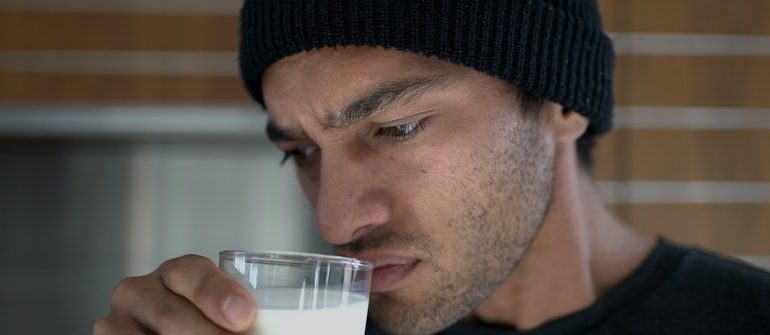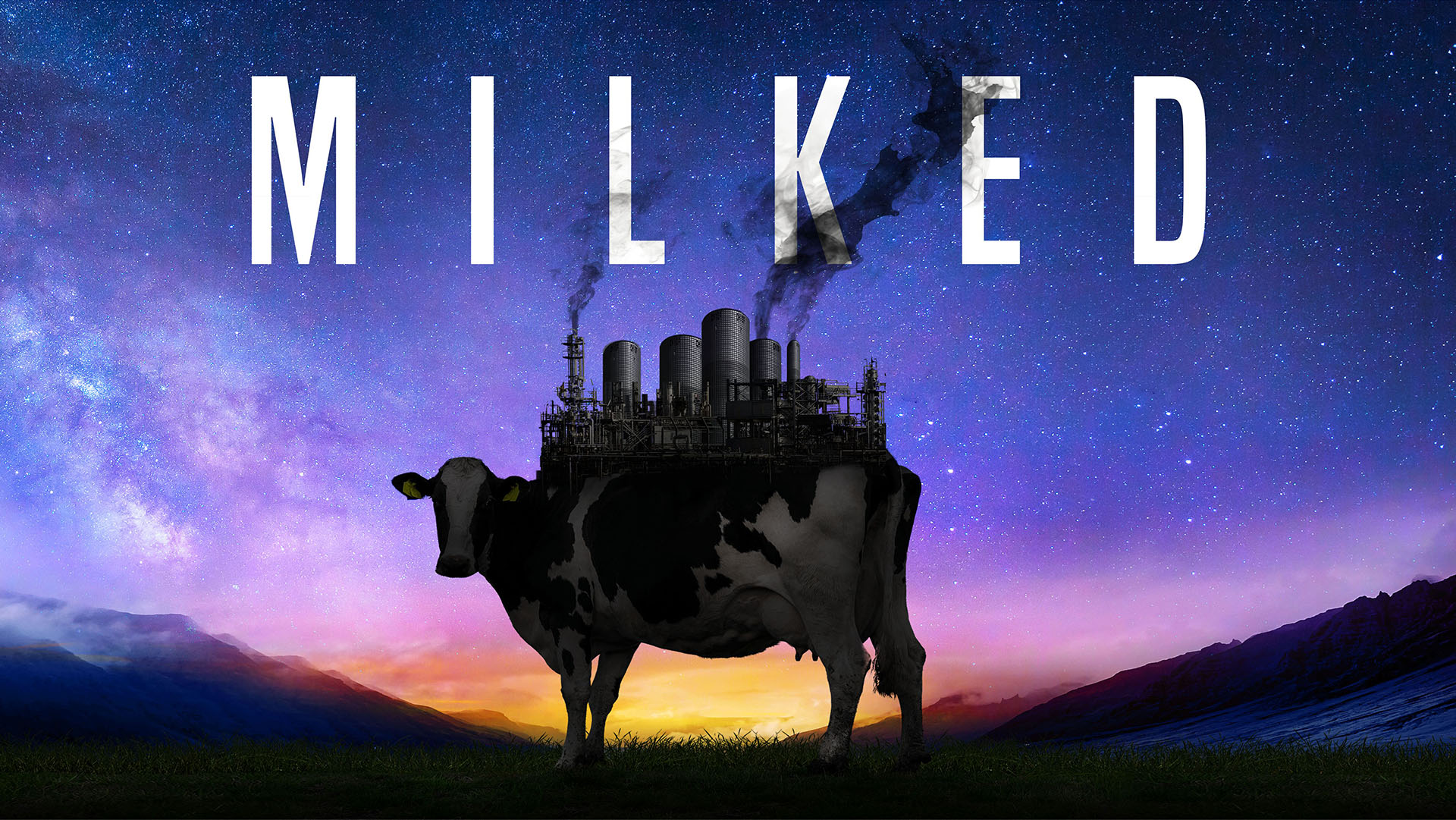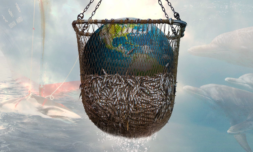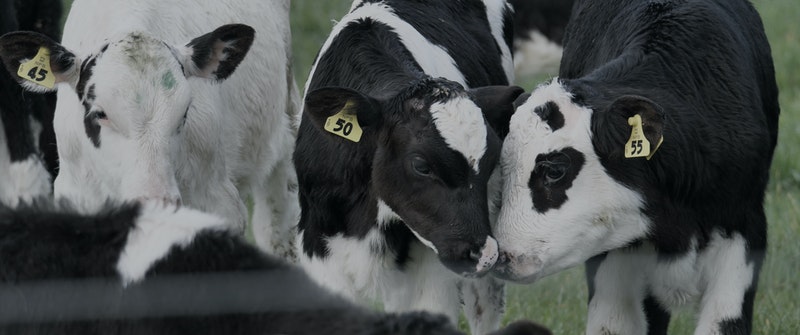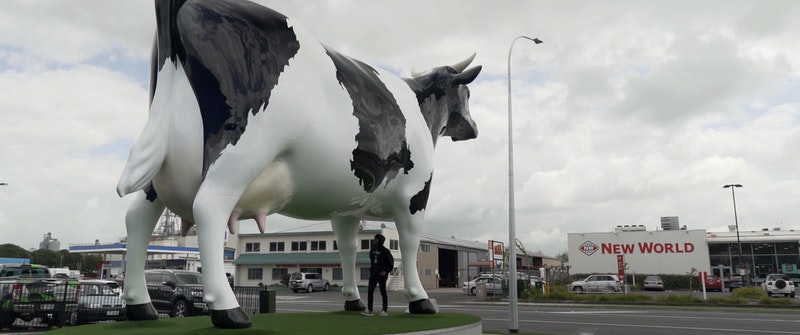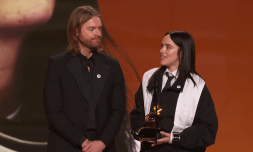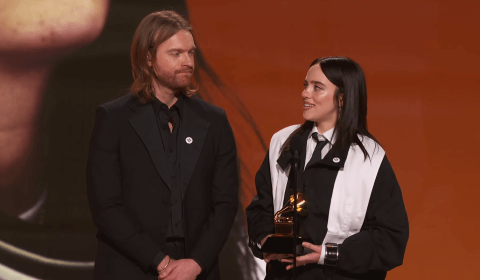Now available to watch for free on environmentally-focused streaming service Waterbear, Milked offers a magnified look at New Zealand’s dairy industry and the damage it’s inflicting on the country and world as a whole.
Why are we still drinking cow’s milk?
This is the question that Milked, a new documentary available on Waterbear, wants you to ask. Fair warning, be prepared for every conceivable pro-dairy argument to be debunked during the doc’s 90-minute run time.
Presented by Chris Huriwai and directed by Amy Taylor, Milked follows in the footsteps of documentaries like Cowspiracy, Seaspiracy and The Biggest Little Farm, which aim to expose the true cost of convenient and consistent food supplies.
Milked started life via a crowdfunding campaign. After smashing its initial $100,000 goal in just 12 days, the documentary has gone on to receive many accolades and noteworthy praise. Academy Award winning director James Cameron commented that the film was a ‘powerful wake-up call that the world is getting Milked.’
With an endorsement like that from Avatar’s creator, Milked has plenty of reasons to give it a try.
Is the film worthy of this admiration, however? More importantly, is Milked’s message unique enough to stand out from its predecessors, and effectively contribute to conversation surrounding sustainable agriculture in a meaningful way?
A documentary we’ve seen before
Documentary veteran Amy Taylor follows a familiar format for Milked that is increasingly becoming the norm for factual films in the streaming age.
We are introduced to a young activist antagonist, in this case Chris Huriwai, who’s stumbled upon a truth that challenges the milk-friendly worldview he held onto as a child growing up in New Zealand.
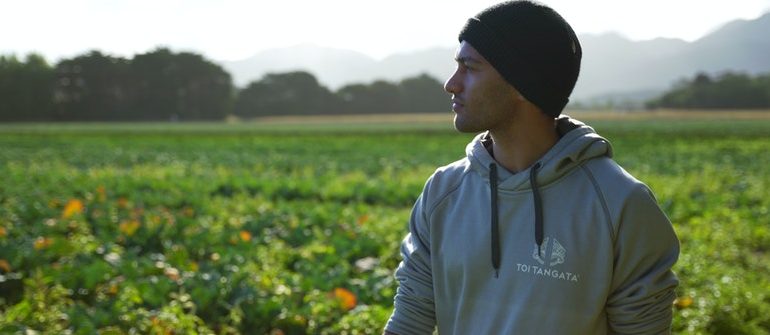
This personal, character-driven approach is fast becoming the ‘once upon a time’ for documentaries.
The film follows Chris on his journey to discover the dark truth surrounding the dairy industry. Along the way we are treated to interviews with farmers, scientists, politicians, and conservationists like the incredible Dr. Jane Goodall – cleverly contrasted with attempts to speak to industry representatives who repeatedly refuse to comment.
When will these companies learn that a montage of answerphone messages can be more damning than inviting filmmakers to the table?
The documentary confronts us with alarming facts and stats, nicely presented with aesthetically-pleasing graphics, even though the information itself is rather unpleasant to absorb. Did you know, for example, that 96% of the resources that go into rearing a cow are ultimately wasted? It makes the McDonald’s ‘Saver Menu’ seem frightening.
The evidence all points towards one conclusion – the dairy industry is not as green as it claims to be.
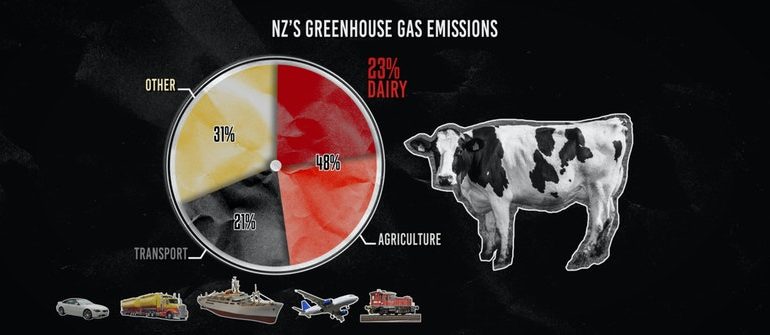
The problem with dairy
If you are a regular Thred reader, it’ll come as no surprise that farming livestock is one of the largest contributing factors to the environmental crisis we’re currently in.
It’s fast becoming common knowledge that cows cause more damage to the planet than cars, but more often than not this revelation is associated with last night’s Quarter Pounder, and not this morning’s cereal dampener.
Milk is just as much to blame as meat, and Milked does a good job of making sure you leave with that branded on your brain.
But why doesn’t milk have as bad a rep as meat?
The documentary addresses many of the misconceptions we hold onto when it comes to cow juice.
For instance, dairy is a great source of calcium and as I have been repeatedly informed in a French accent by Petits Filous adverts, it “helps bones grow stwonger”.
After all, they wouldn’t promote giving milk to schoolchildren if it wasn’t good for us, right?
Milked makes sure you know this is just misleading marketing by the dairy industry. Scientists interviewed for the documentary reveal that health and bone strength are not proportional to milk intake. In fact, there’s quite a lot of evidence to suggest that cow’s milk shouldn’t be consumed by people at all.
When you also consider the massive amount of antibiotics used on livestock and the increasing human immunity as a result, the whole process is hugely detrimental to our health.
But revelations like this have been emerging for a long time. Does one more documentary damning cattle farming add enough to tip the scales?
